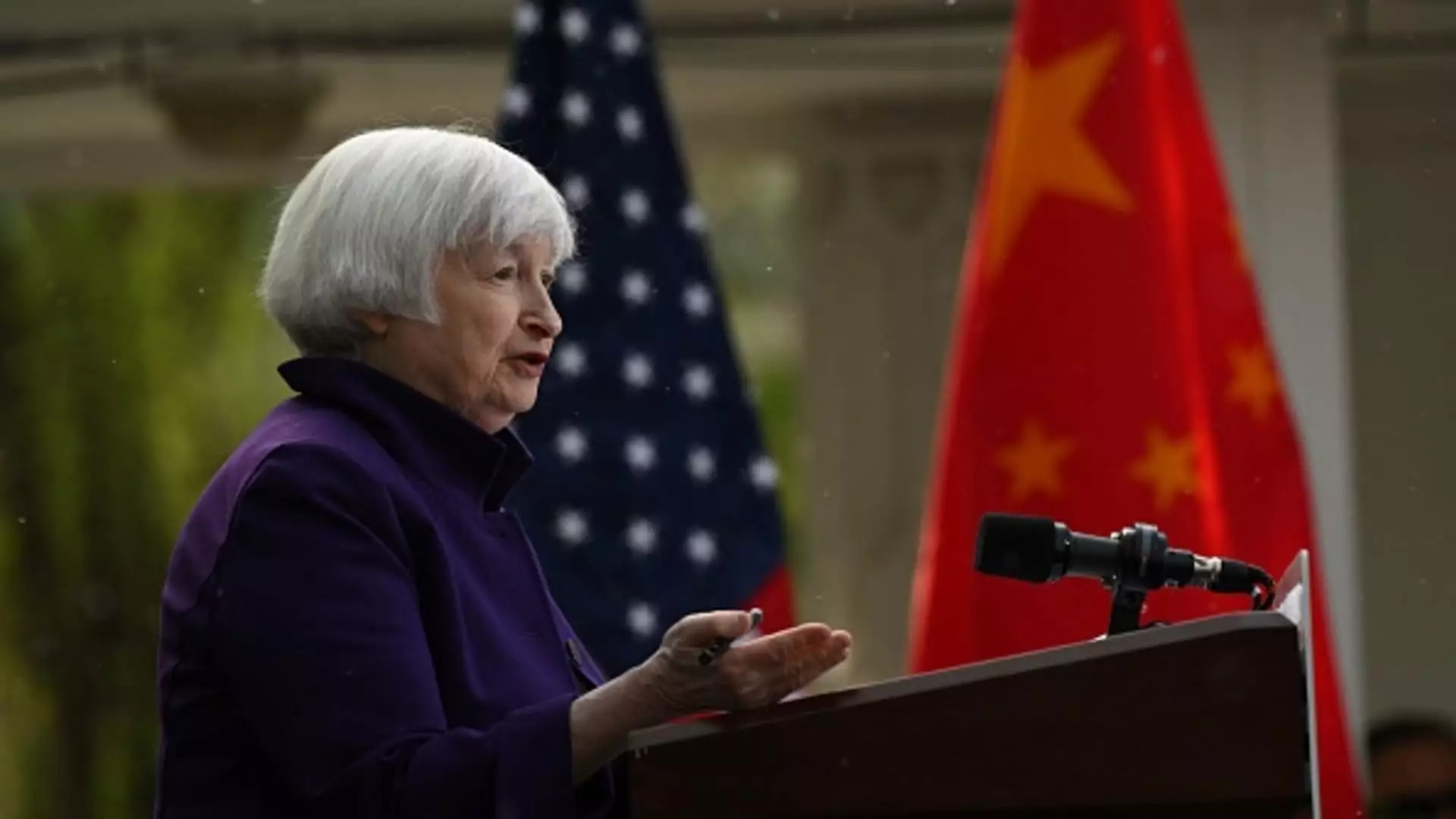During Janet Yellen’s recent trip to China, she emphasized the need for Beijing to change its policy on industry and the economy. Yellen highlighted the importance of addressing issues such as China’s industrial overcapacity, excess production of goods, and the impact on global competitors’ pricing. This indicates a clear focus on the need for a shift in policy that would benefit both China and the international community.
One of the key challenges identified during Yellen’s discussions with Chinese officials was the issue of industrial overcapacity. This excess production of goods has raised concerns about unfair competition and the potential loss of American jobs. While China’s commerce minister defended the country’s stance, attributing the growth of their EV industry to innovation rather than subsidies, Yellen emphasized the need for anti-subsidy and anti-dumping investigations to address these concerns.
Yellen also highlighted the importance of boosting domestic demand in China by supporting areas such as retirement and children’s education. By addressing factors like the high cost of living, including housing and healthcare, China can encourage its citizens to spend rather than save. This shift in consumer behavior could help reduce industrial overcapacity and stimulate economic growth in the long run.
Yellen’s discussions with top Chinese officials, including Premier Li Qiang and Vice Premier He Lifeng, focused on strengthening the bilateral relationship between the U.S. and China. Both countries agreed to engage in intensive exchanges on balanced growth in the domestic and global economies, as well as cooperate on anti-money laundering efforts. This collaborative approach demonstrates a commitment to addressing economic challenges and promoting financial stability.
As both Washington and Beijing increasingly cite national security concerns in economic matters, Yellen emphasized the need for open communication and exchange of information on the use of economic tools in national security. China’s efforts to bolster its technological capabilities in the face of U.S. restrictions highlight the importance of adapting to changing global dynamics and ensuring mutual benefit in economic relations.
Janet Yellen’s visit to China underscored the importance of policy shifts, domestic demand promotion, and bilateral cooperation in addressing key economic challenges. By engaging in open dialogue and seeking common ground, the U.S. and China can work together to promote economic growth, financial stability, and a more balanced global economy.

